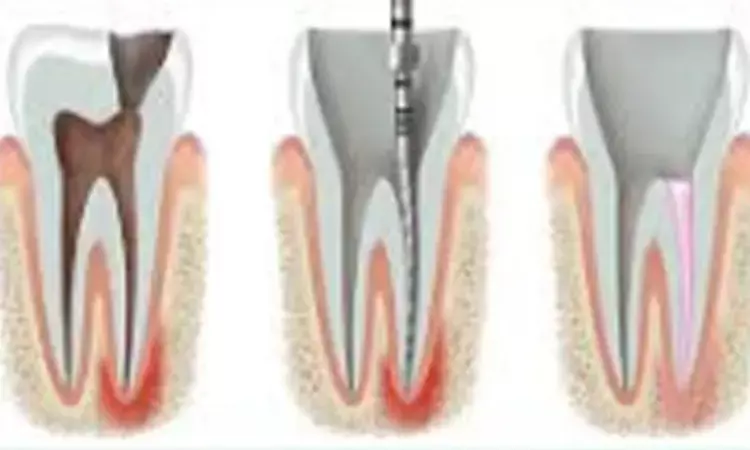- Home
- Medical news & Guidelines
- Anesthesiology
- Cardiology and CTVS
- Critical Care
- Dentistry
- Dermatology
- Diabetes and Endocrinology
- ENT
- Gastroenterology
- Medicine
- Nephrology
- Neurology
- Obstretics-Gynaecology
- Oncology
- Ophthalmology
- Orthopaedics
- Pediatrics-Neonatology
- Psychiatry
- Pulmonology
- Radiology
- Surgery
- Urology
- Laboratory Medicine
- Diet
- Nursing
- Paramedical
- Physiotherapy
- Health news
- Fact Check
- Bone Health Fact Check
- Brain Health Fact Check
- Cancer Related Fact Check
- Child Care Fact Check
- Dental and oral health fact check
- Diabetes and metabolic health fact check
- Diet and Nutrition Fact Check
- Eye and ENT Care Fact Check
- Fitness fact check
- Gut health fact check
- Heart health fact check
- Kidney health fact check
- Medical education fact check
- Men's health fact check
- Respiratory fact check
- Skin and hair care fact check
- Vaccine and Immunization fact check
- Women's health fact check
- AYUSH
- State News
- Andaman and Nicobar Islands
- Andhra Pradesh
- Arunachal Pradesh
- Assam
- Bihar
- Chandigarh
- Chattisgarh
- Dadra and Nagar Haveli
- Daman and Diu
- Delhi
- Goa
- Gujarat
- Haryana
- Himachal Pradesh
- Jammu & Kashmir
- Jharkhand
- Karnataka
- Kerala
- Ladakh
- Lakshadweep
- Madhya Pradesh
- Maharashtra
- Manipur
- Meghalaya
- Mizoram
- Nagaland
- Odisha
- Puducherry
- Punjab
- Rajasthan
- Sikkim
- Tamil Nadu
- Telangana
- Tripura
- Uttar Pradesh
- Uttrakhand
- West Bengal
- Medical Education
- Industry
Clonidine addition to lidocaine reduces postoperative pain after root canal treatment

Clonidine has been proposed as an adjunct to lidocaine in dentistry. Studies have demonstrated that the combination of lidocaine and clonidine decreases postoperative pain and consumption of analgesics following third molar extractions and improves the success of pulpal anesthesia via inferior alveolar nerve block (IANB) for symptomatic irreversible pulpitis (SIP) cases. However, the effect of clonidine on postoperative endodontic pain is poorly understood.
The administration of clonidine added to lidocaine may reduce early postoperative pain and consumption of analgesics following endodontic treatment in lower molars with symptomatic irreversible pulpitis, according to a recent study.
The study is published in the Journal of Conservative Dentistry.
Elham Shadmehr and colleagues from the Department of Preventive and Restorative Dental Science, School of Dentistry, University of California, San Francisco, CA, USA carried out a double-blind randomized clinical trial which assessed the efficacy of clonidine added to lidocaine for postoperative pain following endodontic treatment of mandibular molars with symptomatic irreversible pulpitis (SIP).
One hundred participants with lower molars experiencing SIP were recruited and randomly assigned to two groups. 1.8 mL of 2% lidocaine with either epinephrine (1:80,000) or clonidine (15 μg/mL) was administered to each group via an inferior alveolar nerve block.
A Heft–Parker Visual Analog Scale was used to rate preoperative pain and at 6, 12, 24, 36, 48, and 72 h following endodontic treatment. Their postoperative analgesic consumption was recorded. The analgesic efficacy was analyzed by Chi-square test, paired t-test, and repeated measures ANOVA (P < 0.05).
The study results showed that early postoperative pain was significantly lower in the lidocaine/clonidine group than the lidocaine/epinephrine group (6 h: P = 0.038; 12 h: P = 0.031). The lidocaine/clonidine group consumed a significantly lower amount of analgesics (P = 0.048).
As a result, the authors concluded that clonidine at 15 μg/mL may be safely used as an additive to lidocaine to manage postoperative pain and reduce analgesics following endodontic treatment on mandibular molars in patients with symptomatic irreversible pulpitis.
The application of clonidine in endodontic pain management should be further investigated in future research studies, they added.
Shadmehr E, Sarmast ND, Davoudi A, Chung YJ, Wang HH. The additive effect of clonidine to lidocaine on postoperative pain management after root canal treatment on mandibular molars with symptomatic irreversible pulpitis: A prospective randomised double-blind clinical trial. J Conserv Dent 2021;24:24-8
Dr. Nandita Mohan is a practicing pediatric dentist with more than 5 years of clinical work experience. Along with this, she is equally interested in keeping herself up to date about the latest developments in the field of medicine and dentistry which is the driving force for her to be in association with Medical Dialogues. She also has her name attached with many publications; both national and international. She has pursued her BDS from Rajiv Gandhi University of Health Sciences, Bangalore and later went to enter her dream specialty (MDS) in the Department of Pedodontics and Preventive Dentistry from Pt. B.D. Sharma University of Health Sciences. Through all the years of experience, her core interest in learning something new has never stopped. She can be contacted at editorial@medicaldialogues.in. Contact no. 011-43720751
Dr Kamal Kant Kohli-MBBS, DTCD- a chest specialist with more than 30 years of practice and a flair for writing clinical articles, Dr Kamal Kant Kohli joined Medical Dialogues as a Chief Editor of Medical News. Besides writing articles, as an editor, he proofreads and verifies all the medical content published on Medical Dialogues including those coming from journals, studies,medical conferences,guidelines etc. Email: drkohli@medicaldialogues.in. Contact no. 011-43720751


